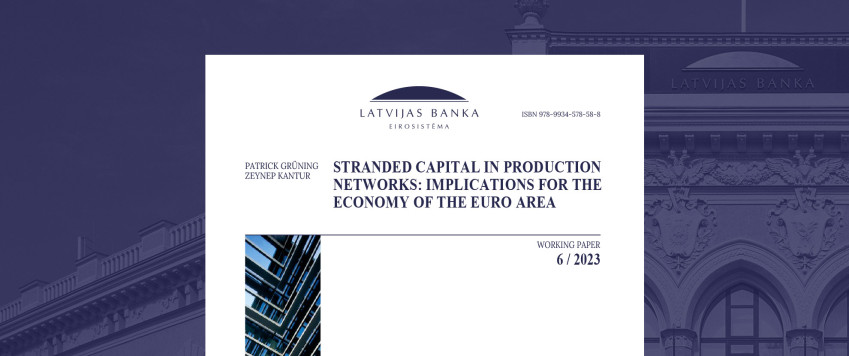Stranded Capital in Production Networks: Implications for the Economy of the Euro Area
Working paper 6/2023

The most effective approach to tackling climate change is by decarbonising produc- tion processes. However, decarbonisation might render assets stranded, impacting not only the relevant sector but also causing a ripple effect across all sectors, thereby potentially destabilising macroeconomic stability. We develop a multi-sector New Keynesian model with two physical capital types (brown and green) and input- output linkages to examine the economic impact of sector-specific capital stranding. Stranded brown capital in the brown sector yields a relocation of economic ac- tivities to the green sector and thus environmental benefits with small aggregate consequences, while brown capital stranding in both sectors implies larger economic costs and smaller environmental benefits. Brown consumption taxes and green pro- ductivity shocks facilitate the green transition, while brown investment taxes or green investment subsidies turn out to be less favourable policies in this respect. However, a combination of these two investment policies yields favourable economic and environmental outcomes. Doubling the carbon tax in the brown sector yields significant relocation activities at relatively small economic costs. If the central bank responds strongly to short-run inflationary pressures of carbon tax increases, this leads to larger output losses in the short run and higher output gains in the long run.
Keywords: capital utilization, stranded assets, production network, climate change, fiscal policy, monetary policy
JEL codes: E22, E32, E52, E61, L14
Textual error
«… …»


